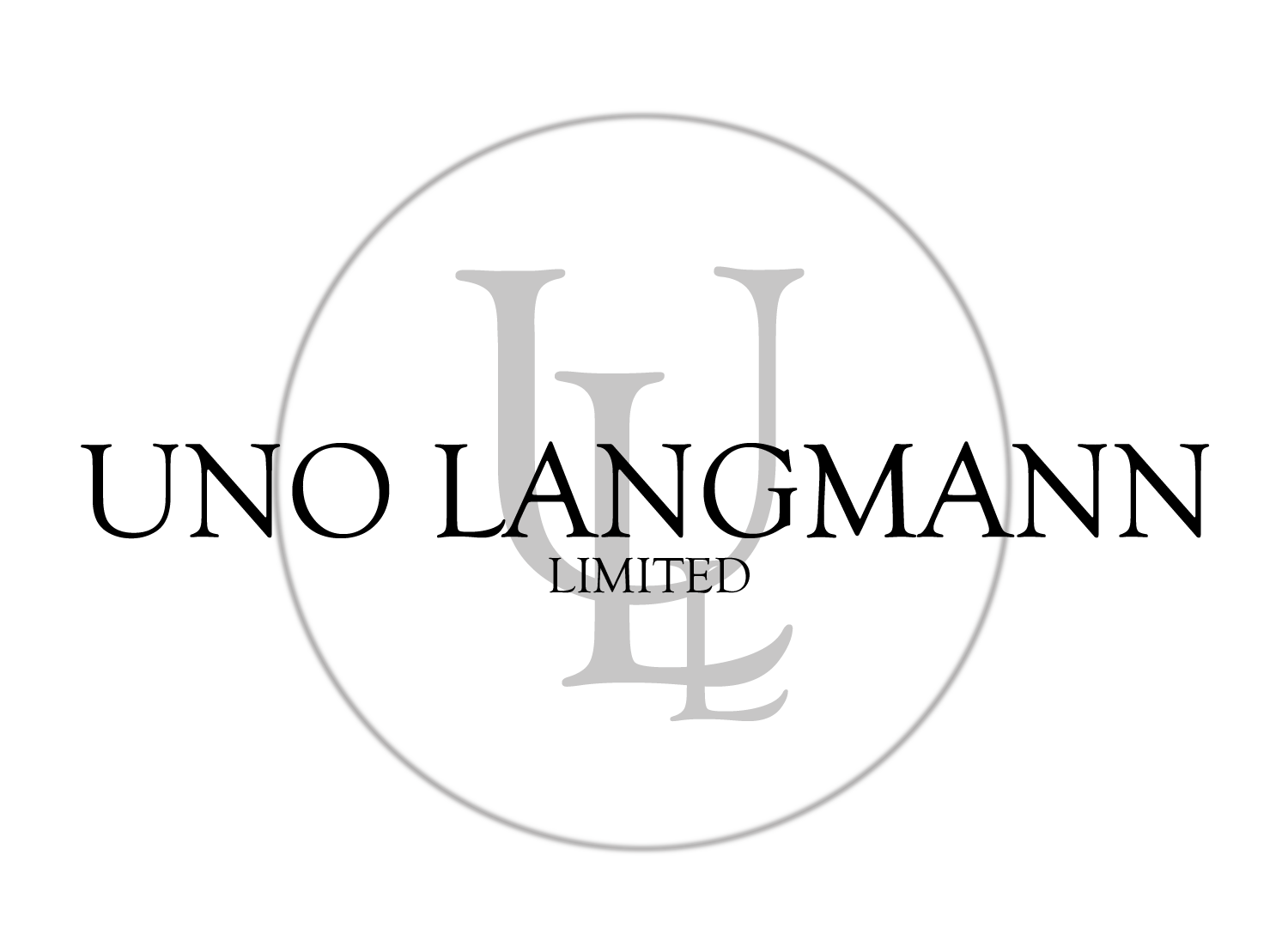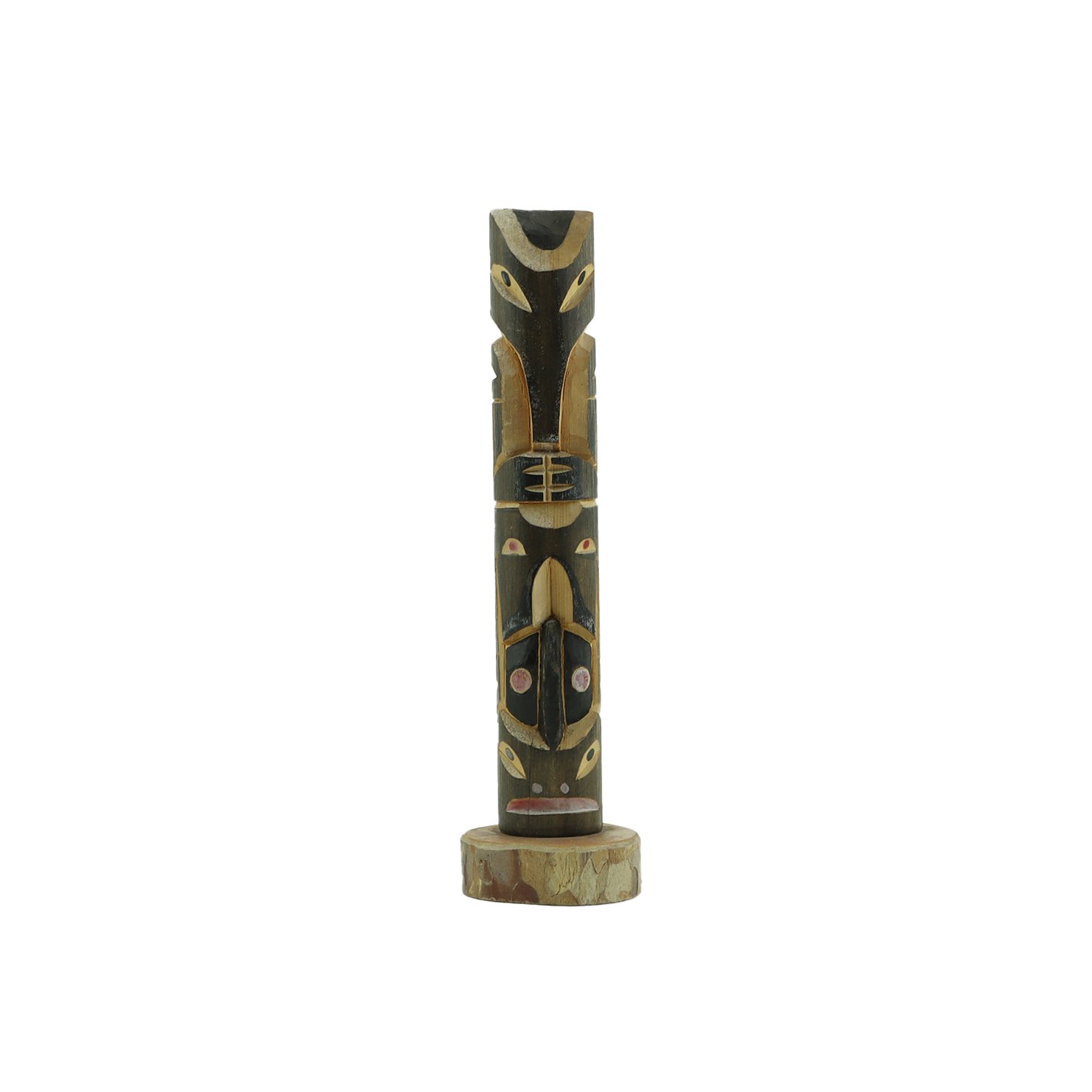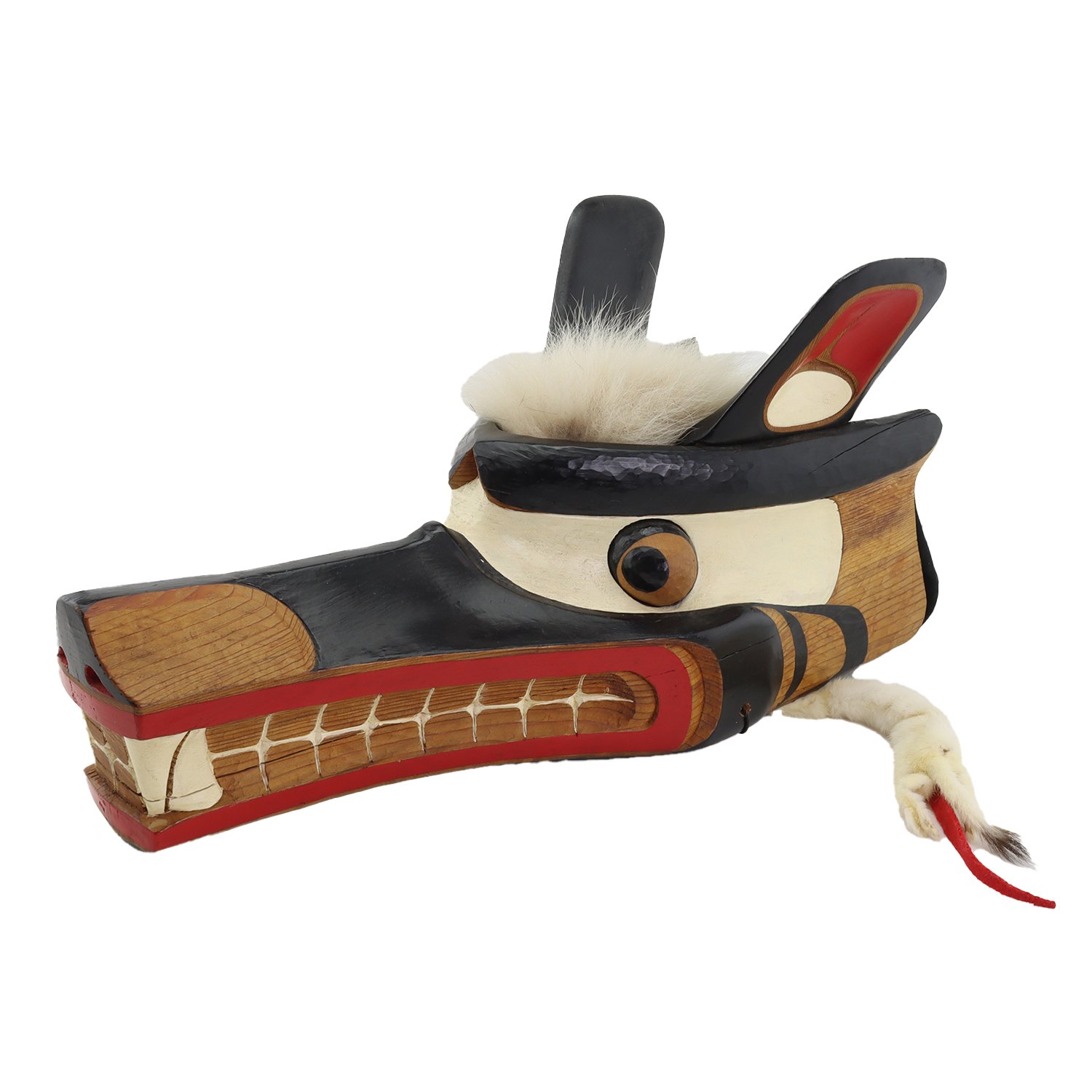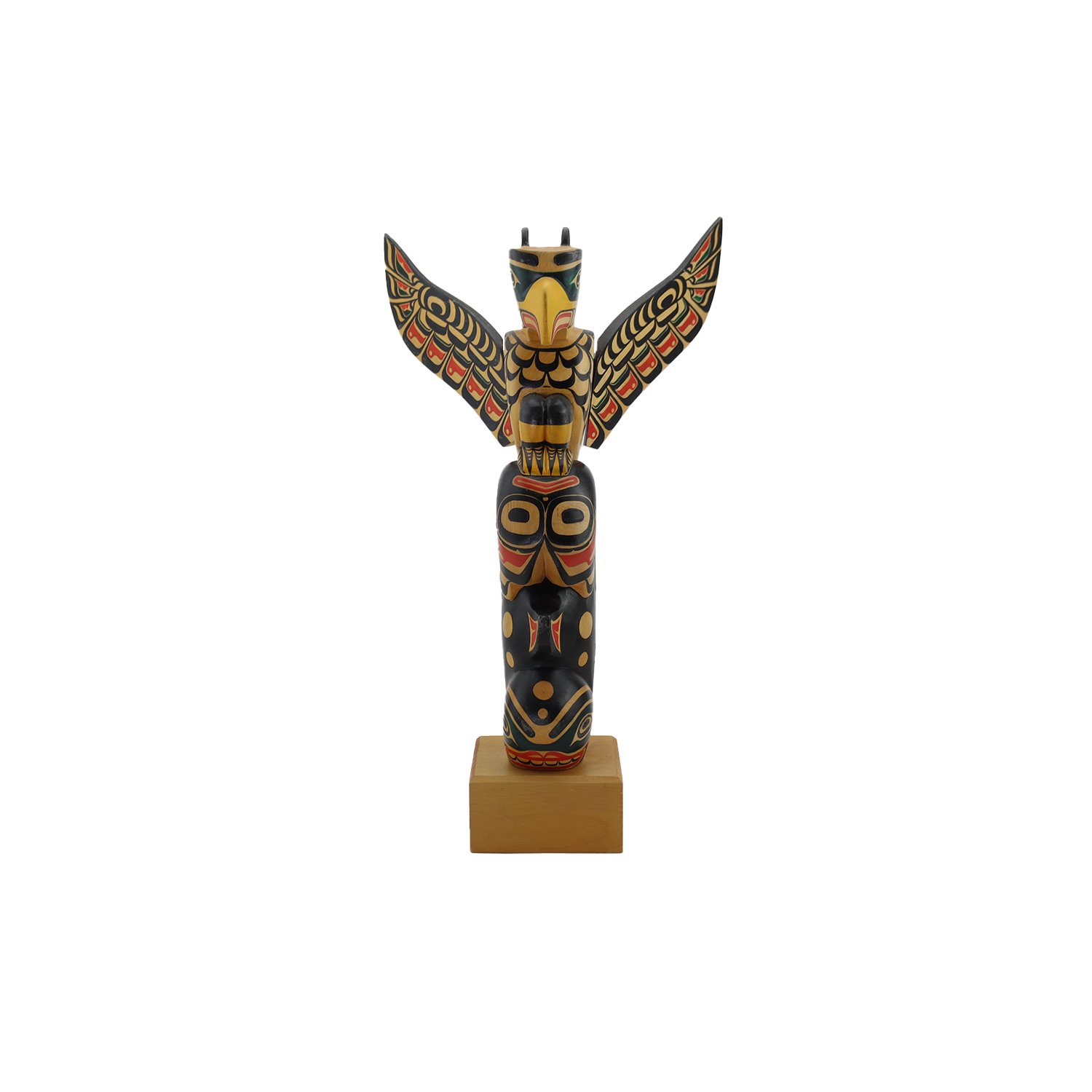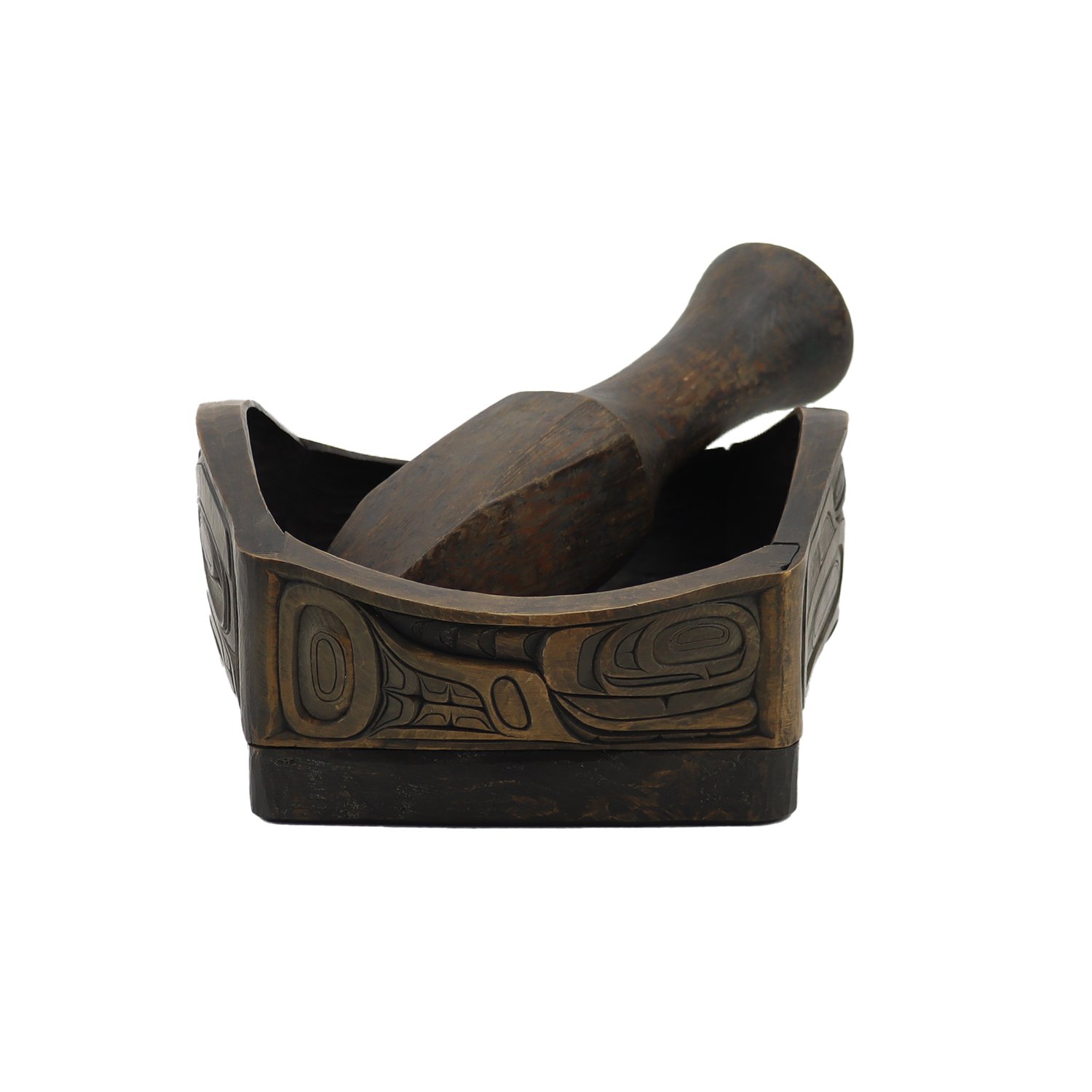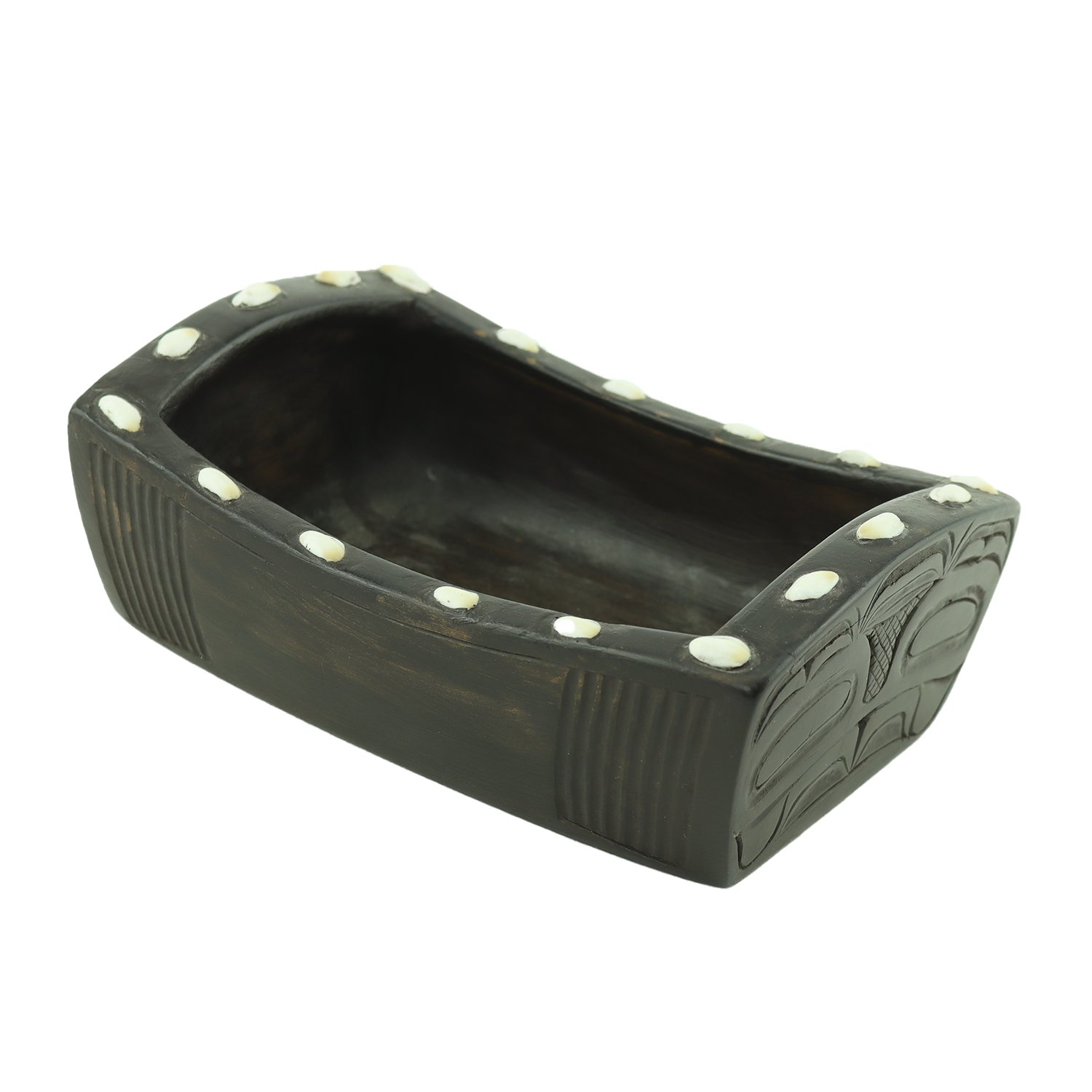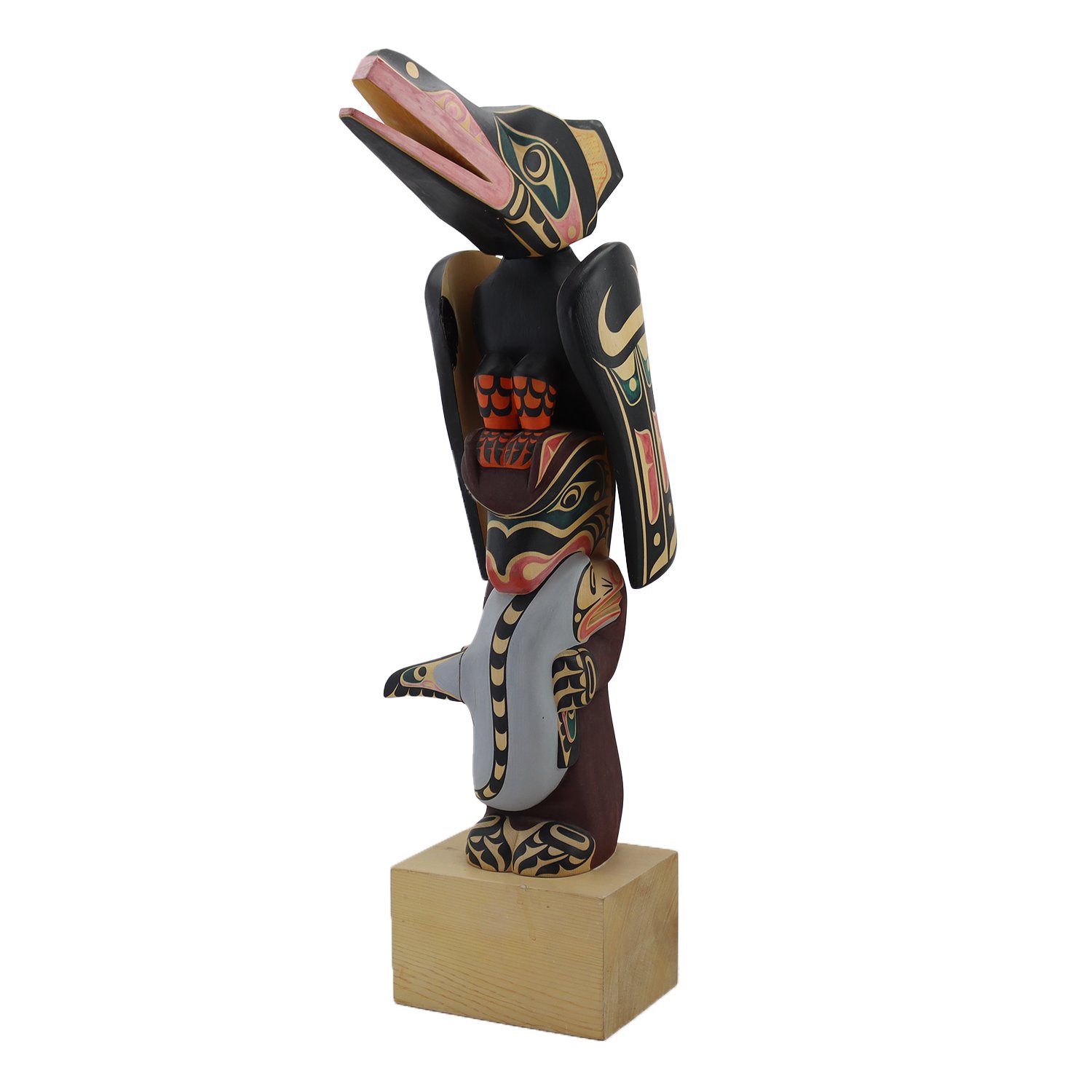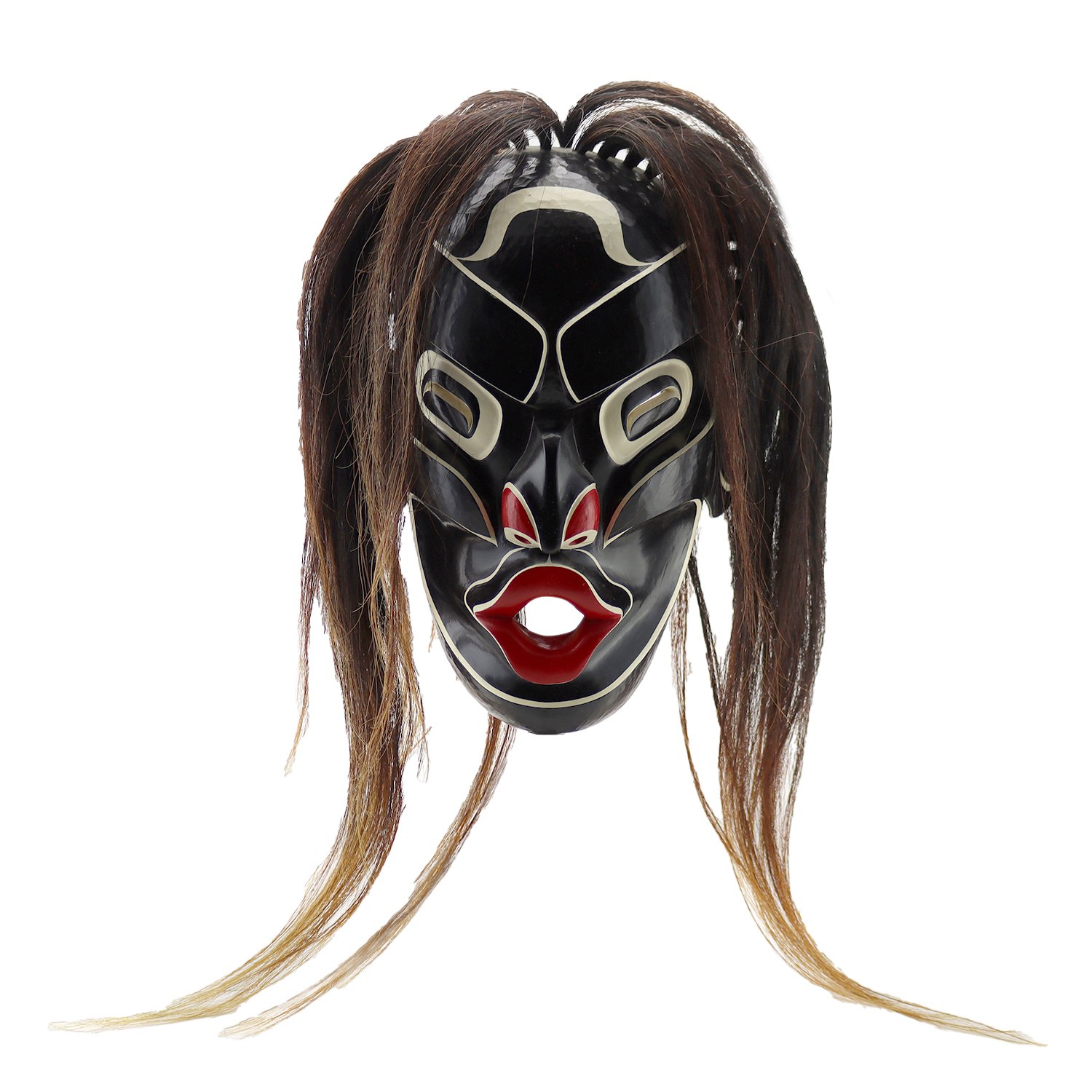Rene (Phil) Nuytten (Tlax’wsam)
Canadian/Métis, adopted Kwakwaka’wakw 1941-2023
AVAILABLE WORKS
SELECT SOLD
Often referred to as a “Renaissance man”, Phil Nuytten was a pioneer in many fields – underwater explorer and sub-sea engineer, inventor, marine archaeologist, tech manufacturer, businessman, songwriter, carver, author, native advocate, and avid collector. He was born in Vancouver in 1941 and developed an early interest in both diving and Northwest Coast Indigenous art. Phil’s entrepreneurial interests were supported by his parents, who backed him in his early carving and diving endeavours. He turned these passions into a successful career and sat on award and grant committees for several philanthropic diving and Indigenous organizations, as well as mentoring and supporting young ocean advocates and students. He received honorary doctorates from Queens University, Vancouver Island University, and Simon Fraser University. In 1992, Phil received the Order of British Columbia in recognition of his contribution to the economic well-being of the province and the recognition and support of the indigenous culture, and for making the province known beyond its borders as a leader in underwater high-technology. He was appointed an Officer of the Order of Canada in 2016 for his innovations in deep sea exploration. He was married to his high school sweetheart and beloved wife Mary for 58 years until her death in 2021. He continued to work, produce and collect until his death at the age of 81.
Phil began diving at the age of 11. He was a passionate activist for ocean health, dedicating his career to deep ocean work and exploration, and specifically to ensuring that divers have full access to continental shelf depths without the hazards of decompression. He is widely regarded as one of the pioneers of the modern commercial diving industry and a significant force in the creation of new subsea technology. He founded Western Canada’s first diving shop at the age of 15, and two years later was one of the first divers in the water when the Iron Worker’s Memorial Bridge collapsed. He began a career in commercial diving and worked in logging camps and pulp mills before landing a diving job at the Bennett Dam on the Peace River. He founded Can-Dive Services Ltd in 1965, and co-founded Oceaneering International Inc., which became one of the largest underwater-skills company in the world. His work with high-Arctic expeditions, testing designs of life-support gear for use in polar and sub-polar conditions, and his involvement in underwater activities in virtually all the world’s oceans made Phil a leader in subsea technology. In 1982 he patented a break-through rotary joint design, the basis for his world-famous ‘Newtsuit’ ADS (one-atmosphere diving suit). This led to its successor, the ultra-lightweight hard ‘Exosuit ADS’, which is a valuable tool for research scientists, commercial divers, military organizations and explorers globally. His ‘Remora’ submarine rescue system is described as a major break-through in submarine safety, and his work on the ‘DeepWorker’ micro-subs to study deep ocean environmental impact has significantly increased scientists’ understanding of underwater ecology, habitats, and biodiversity. He has appeared on the cover of dozens of publications, was a popular speaker, and published numerous technical papers on his leading-edge work. He was heavily involved in TV and film productions, consulting and providing submersibles and subsea devices for blockbuster movies such as James Cameron’s “The Abyss’ and “Titanic”. He also worked extensively with National Geographic, NASA and the Canadian Space Agency.
Growing up in Vancouver’s West side, Phil developed an interest in Northwest Coast art from studying the totem poles in Stanley Park and visiting the Vancouver Museum. At the age of 11 he learned of his Aboriginal heritage on his father’s side, which fueled his interest in studying and learning the fundamentals of Northwest Coast carving. He contacted noted Kwakwa̱ka̱ʼwakw carver Ellen Neel, who agreed to give Phil lessons alongside her own children. He subsequently met other artists such as Mungo Martin and Amos Dawson, who would both have a profound influence on his life. Phil was dedicated to the preservation of Northwest Coast culture and produced replicas of many early pieces, often working from early drawings and carvings. He was formally adopted by the Dawson family, who were Mamalilikulla from Village Island, and was given his first name Tlax’wsam (pronounced “Tlock-sum”), meaning red snapper. In 1982 Phil published the seminal book on master carvers Charlie James, Ellen Neel and Mungo Martin Neel titled The Totem Carvers. Phil was a talented artist in many media including drawing and painting, wood carving, and engraving. His vast collection includes not only impressive and rare examples of Charlie James, Ellen Neel and Mungo Martin works, but also early 19th century to modern day works by artists including Robert Davidson, Beau Dick, John Livingston, Doug Cranmer, Don Smith (Lelooska), Bill Reid, Joe and Willie Seaweed, Dorothy Grant, Henry Hunt, and others.
Phil’s collecting is best summed up in his own words:
My interest in art from the Northwest Coast began in my teenage years when I was fortunate enough to apprentice with a master carver. I spent several summers in British Columbia working with Ellen Neel and sometimes with her uncle Mungo Martin. I wanted to be a master carver – a totem pole carver. Life, however led me in other directions. Nevertheless, I never lost my interest in native culture, its objects, and its artifacts.
The types of things that I collect are many and varied, mostly the things I like the look and feel of. I do a lot of this kind of artwork myself. As a consequence, I have a foot in both worlds – the world of the artist and the world of the collector. The pieces are most wonderful to look at, they also inspire me to find out more about the technique. How were they made? How can I first recreate them as studies and then create my own work based on them?
I have been collecting native art since I was about 11 or 12 years old. Many of the items I collect are made by the people whose lives I have studied and written about in periodicals. If an artifact needs to be in my collection, it will tell me so. I can almost hear it calling.
I believe some of the Northwest Coast pieces I have collected are very important to scholars because they are unique. They are works that were produced either earlier in the career of a certain carver or for a particular, rather obscure ceremony. By bringing them together it is possible to see how an artist’s work has progressed over the years.
Excerpt from an interview, April 2004 - Source: Vancouver Art Gallery
